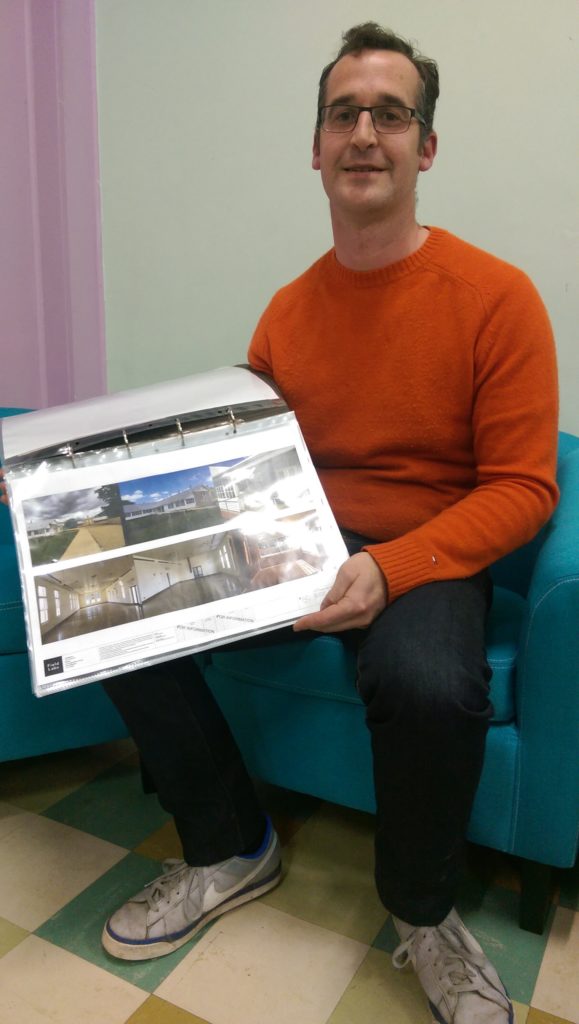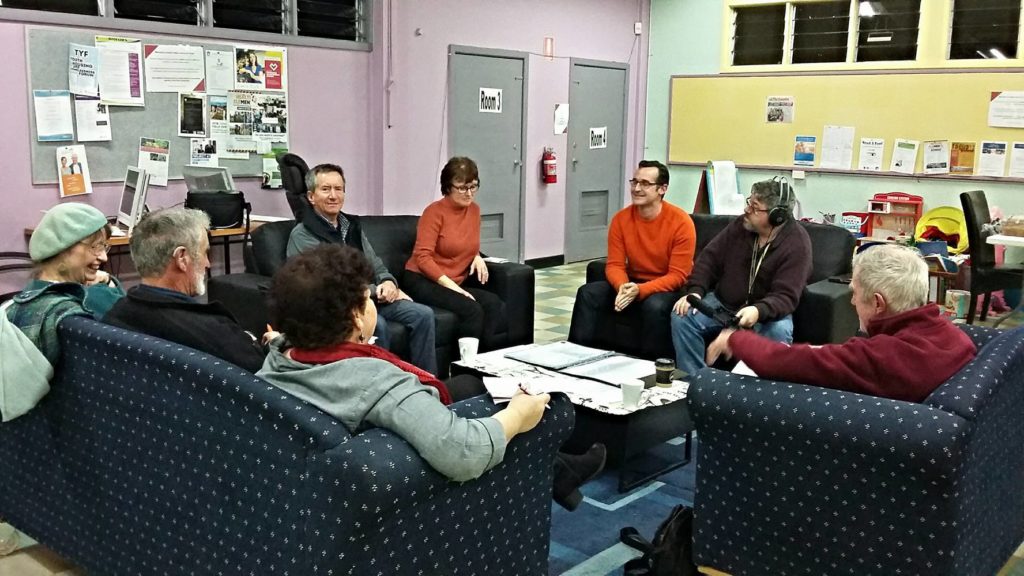
The Friends of Willow Court Committee were honoured to have the company of Rodney Dunn at the 2016 annual general meeting. Rodney is the owner of the Derwent Valley favourite and world famous ‘Agrarian Kitchen’ situated in Lachlan. Renowned for his gourmet expertise, delightful old -world cooking school and neighbourly connections for fresh ingredients Rodney shares his plans for a new eatery and shop within Willow Court. The newly renovated Bronte building within the council owned section of Willow Court presents an appealing, relaxed and historically significant atmosphere for a choice dining experience.
It has been a foresight of the Friends of Willow Court of the sites potential for tourism and educational opportunities. Rodney explains the eatery’s location within the picturesque setting of the valley will provide an idyllic destination for functions and travellers to dine. The eatery and shop will show case locally sourced produce and highlight specialist kitchen equipment. Diners will enjoy the taste of the valley with a finely crafted menu. The site has room for expansion or as Rodney envisions a partnership with a boutique brewery.
Excited by the prospect of tourism to the site, committee members still held concerns for how the new eatery would engage the public with the historical memories and stories of the site. It was discussed and subsequently agreed upon that the sites rich heritage be preserved through interpretation. Rodney is eager to work with Friends of Willow Court, the Derwent Valley Council and the Willow Court History Group to implement interpretive panels within the eatery that will feature key stories that will connect the past to the present.
 The new Agrarian Kitchen will reinvigorate the Willow Court historic Precinct with a modern dining experience for locals and visitors alike. Through interpretation the Friends of Willow Court Committee will help to develop a sophisticated respect and connection with the sites heritage to promote education and a more informed future.
The new Agrarian Kitchen will reinvigorate the Willow Court historic Precinct with a modern dining experience for locals and visitors alike. Through interpretation the Friends of Willow Court Committee will help to develop a sophisticated respect and connection with the sites heritage to promote education and a more informed future.
By Nadia Lobb
4 Comments
Just wondering whether the “historical memories and stories of the site” with which the society wants to engage the public include any information on or representation of the pre-European period? Because personally when I see only post-colonial stories & information it feels like a whitewash and it really makes me not want to engage with it.
There are some works from archaeology experts to determine any historical evidence that exist. There has been some already and some done before the sale of any buildings. How thorough the work were I don’t know. I would love to see and know what evidence there is around the who;e area so the whole story can be told and it would put the small amount of white settlement into a larger context.
Cheers
Mark
Thanks Mark.
I would love to see and know whatever is available too.
Wikipedia says that a clan called the Leenowwenne (part of the Big River nation) lived here. I wonder how accurate that is? Any idea?
I have no idea about Wikipedia. The local first peoples would be happy to confirm their history in the area and there is an archaeologist with a history in this area doing his PhD at Willow Court, so over time we may know more and still find further evidence of the history.
Cheers
Mark